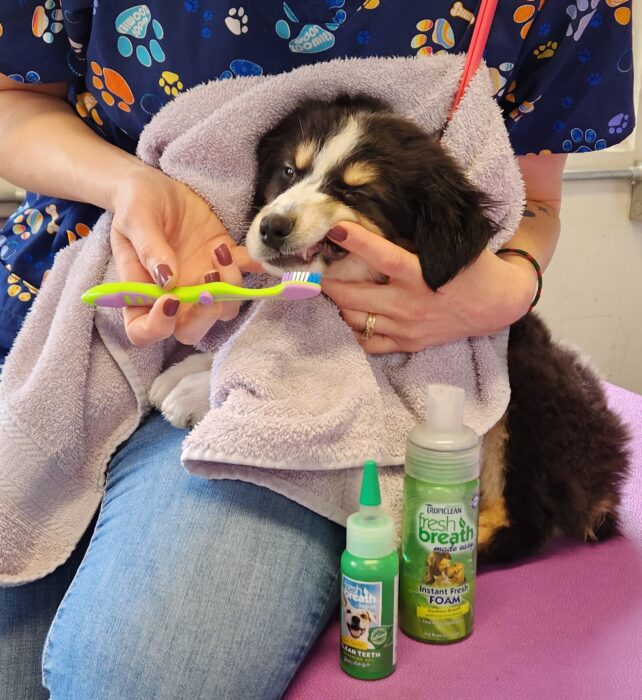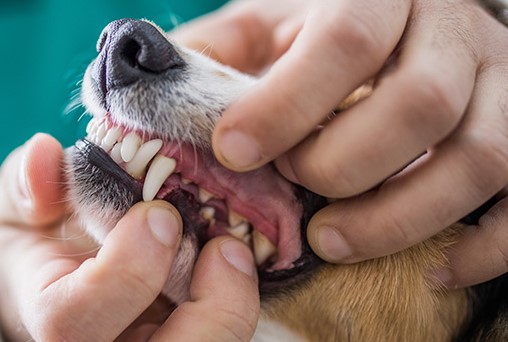National Pet Dental Health Month

How much do you know about your pet’s dental health?
Dental health is a very important part of your pet’s overall health so don’t turn your nose to your pet’s bad breath! That odor might signify a serious health risk, dental problems. It can cause, or be caused by, other health problems with potential to damage not only your pet’s teeth and gums but its internal organs as well. Proper oral care can prevent dental disease. Specifically, managing the accumulation of plaque causing bacteria and the progression to tartar buildup, gum disease and periodontal disease.
The Do’s & Don’ts of Brushing your Pets Teeth
- Brush your pet’s teeth. Do it every day or (at minimum) every other day.
- Use a good quality brush. Brushes sold for pets with extra soft bristles and small heads or brushes for toddlers are great. Make sure to replace the brush every 3-4 months.
- Use a toothpaste if you want but it’s not essential. Make sure it’s a toothpaste for pets. Human toothpastes can be harmful and in some cases, can be deadly (xylitol containing pastes)
- Train your dog to accept a toothbrush with positive reinforcement. Your dog can learn to allow you to brush their teeth, flavored toothpaste for pets helps.
- Don’t worry about being perfect. Round brushstrokes and brushing the inside surfaces are great. Keep it simple and keep it positive.
- Don’t brush too hard. You don’t want to cause gum damage.
- Don’t have unreasonable expectations. A toothbrush cannot replace a dental scaler and a toothbrush is a preventative tool. If your dog or cat has heavy tartar buildup, gum disease or recessed gums, the toothbrush won’t remedy those.
Your pet’s teeth and gums should be checked at least once a year by your veterinarian for early signs of problems and to keep your pet’s mouth healthy.





